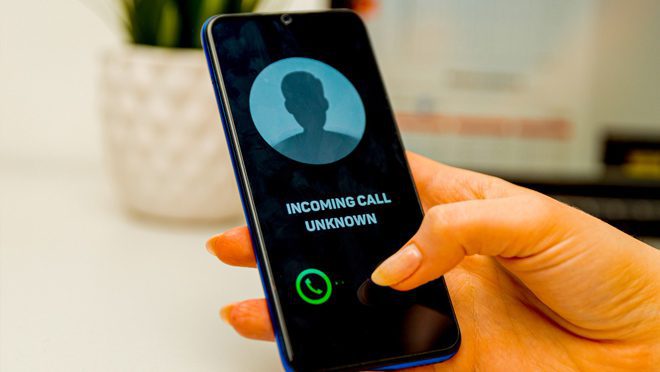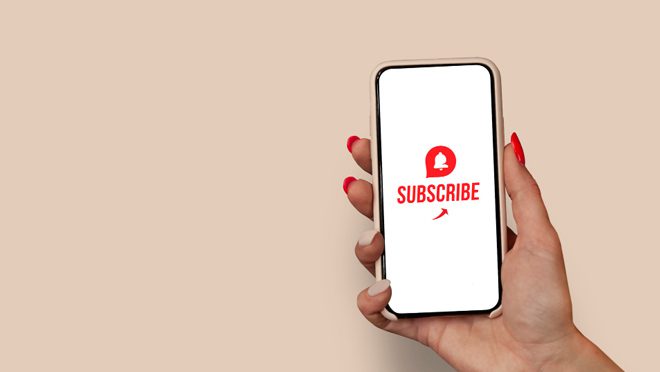Cell phones are more capable than clunky desktop computers were a few decades ago. Most of us use our phones for navigating life, including shopping, banking, and doing business. Phones are a wonderful tool to have in your pocket but they’re also becoming a primary target of scammers.
Consumer advocates warn that cell phone scammers have recently increased the average amount they’re able to trick people out of using cell phones. Now nearly 45 percent of calls to cell phones are scammers looking for victims. Use these tips to recognize common techniques to avoid:
Table of Contents
Vishing/Smishing
These are messages sent to your phone via voice or SMS that require an urgent response. Some may claim that one of your accounts has been hacked and you must respond immediately to fix the situation by clicking on a link or calling back.

Ignore these unsolicited messages because they are just trying to gain access to your personal accounts (they will often require a bank account number or PIN for “verification”) or your personal identity information such as your social security number. Scammers can match any of these numbers with other stolen information and potentially open accounts in your name.
Free ringtones
It’s fun to have a unique signal when a special person is calling but beware of “free” ringtones that are downloaded to your phone. These gimmicks will often come at a high price, including malware that is launched with the download, or a hidden fee.
Fake apps
Everyone wants the latest phone app, but many have turned out to be other than advertised, even trojans that introduce malware on the phones they are downloaded to. Avoid fake or malicious apps by doing some research prior to downloading: check the app developer and look up their website. If little information can be found or if the app has few detailed reviews, beware.
Fraud
Unfortunately, fraud comes in many shapes and sizes. Some scammers claim to be your grandchildren in trouble and in need of cash, others cell phone scams claim to be agents of the government trying to reinstate your suspended social security number.


Many people are also trapped by fake romance scams, these are common phone call frauds that seek the money they say is necessary to travel to see you. Never give anyone your personal financial information over the phone, particularly those who have contacted you (rather than you reaching out to them).
One ring calls
What do you do when you start receiving one-ring calls repeatedly from the same number? Many people give in and call the number back just to find out why they’re getting calls or to tell the person to stop. Resist the urge to call the number back because just calling the number is a cell phone scam and is one of the common phone call frauds. These unsafe phone numbers are likely from a foreign country and you will be charged a high rate for the connection.
Subscriber Fraud
It’s possible for a person to steal your identity and use it to sign up for a cell phone account. By the time you learn that an account has been opened in your name and that you owe hundreds or thousands of dollars for merchandise and fees, it can be difficult to untangle yourself from it. Experts suggest opting for multi-factor identification on your accounts (which should prevent an imposter from responding to a verification email, for instance) and to guard your personal information closely to save yourself from cell phone scams.


Another option is to sign up for an identity monitoring service that notifies you of any accounts opened in your name or using your personal information. Similar to mortgage and credit card checks done through credit reporting agencies like Equifax and TransUnion there is a credit reporting agency for cell service called the National Consumer Telecommunications and Utilities Exchange through which you can request a freeze on future accounts to ensure that your information is not used without your consent.
CashApp cash flipping
The mobile app for sending and receiving money, CashApp, has held legitimate giveaways of funds to attract and reward customers. Some have used that familiarity and trust to scam others using the same app. The way it works is that those drawn into cash giveaways on Twitter or other platforms are contacted by an unknown person and told they can turn a small investment of $10 or $25 into hundreds of dollars by sending the scammer a specific amount via CashApp that is then used to “unlock” the free money.
Once the amount is sent the scammer disappears with it. A similar CashApp scam via text or SMS tells the recipient that they should send a nominal amount (maybe $10) to verify their account and collect giveaway cash. Again, once the verification fee is provided the scammer disappears. To avoid falling into fake giveaways, check the app’s website to learn its real Twitter handle and look for a blue checkmark that indicates it’s a verified account.
Robocalls
Like other sorts of phone call frauds, these calls can claim to offer winnings or special deals. It is better to check calls from unknown numbers before answering them, as those may be a signal to the robocalling scammers that it’s a legitimate number so they will continue to call.
Ignore them if possible. Do not try to interact with robocalls in order to demand that your number is removed from their list because that will often backfire and result in additional calls or interaction with an experienced scammer. The best options are to block such unsafe phone numbers or to enroll your phone on a do not call registry or subscribe to a robocall blocking service.




